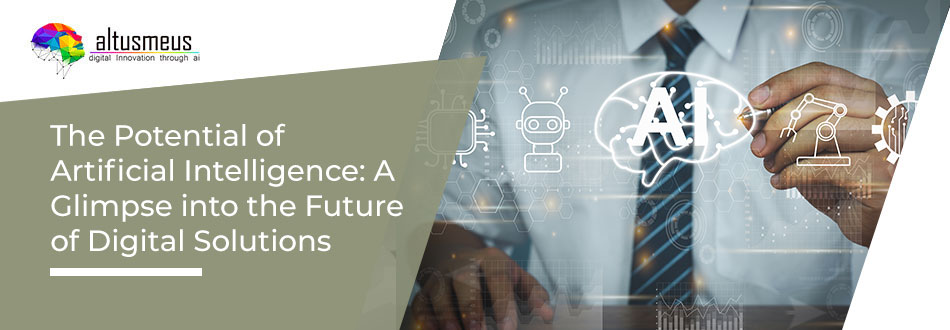Artificial intelligence, for decades, remained confined within the boundaries of labs and classrooms, appearing to most as science fiction that might never become a reality. However, as we step into the third decade of the 21st century, we’ve witnessed the remarkable potential of artificial intelligence. The launch of ChatGPT was a transformative moment that sent ripples across the world, kickstarting a snowball effect in the AI domain. Today, nearly every software company is striving to incorporate AI features into their digital products, aiming to attract new customers and enhance user experiences.
Prominent software companies, including industry giants like Adobe, have integrated AI features into their products such as Photoshop and Premiere Pro. These AI-powered additions have revolutionized the world of photo and video editing, making complex tasks accessible through user-friendly software. Yet, this is only the beginning of the AI journey.
The full extent of AI’s capabilities in the future is beyond our current imagination. In this blog, we endeavor to explore and provide a glimpse into the boundless potential of AI in shaping the future of digital solutions.
The potential applications of AI are vast and varied. In the future, AI is likely to be used to improve our lives in many ways, including:
- AI-Powered Home Appliances: Algorithms and speech recognition are driving remarkable advances in home appliances. Our homes are becoming smarter with gadgets such as automatic vacuum cleaners, smart lighting, and voice assistants such as Alexa. It’s important to note, however, that the aforementioned gadgets may appear to be powered by AI but, in reality, are not. But in the future we will have AI seamlessly integrated into our home appliances, transforming the way we interact with our living spaces.
In just a few decades, AI will effortlessly adjust our home environment, managing tasks such as lighting and odor control, and regulating the temperature without any need for manual prompts. We can imagine having a digital butler similar to Iron Man’s Jarvis, capable of handling a multitude of tasks. It can remind us of our work schedule in the morning, the birthdays of our loved ones and clients, gently signal bedtime, and even wake us up. We can expect to see an array of home gadgets controlled by AI, all working harmoniously to simplify our lives. - AI Health Companion: In the pursuit of an improved lifestyle, people often invest heavily in material possessions like cars, high-end smartphones, and extravagant parties, sometimes neglecting their most precious asset: their health. This oversight occurs because there is often no one to guide them on what to eat and do to lead a healthy life.
However, in the near future, companies will create AI-powered health companions to address this issue, designed to assist individuals who prioritize their well-being. These AI companions will be steadfast and available around the clock. They might be connected via wearable accessories such as rings, bands, glasses, clothes, and more, equipped with various sensors to monitor dietary choices, weight, heart rate, blood pressure, oxygen levels, anxiety, and stress. Meticulously analyzing health test results, they will offer personalized guidance on nutrition and lifestyle choices, empowering users to lead healthier lives. - AI-Powered Tools for Hiring: Currently, one of the most significant challenges faced by companies is finding the perfect candidate for a job vacancy. In the near future companies will develop an AI-powered system that automatically posts job listings on various job portals or a company’s website whenever a position becomes available. This AI system will then meticulously assess every candidate based on their CVs and resumes. It might even scan the candidate’s public online presence for additional insights. Using this comprehensive information, the AI system will make an informed decision about the most suitable candidate for the job. Subsequently, it will initiate contact through messages or calls to conduct an initial interview. This process will help the AI system identify the best candidates, who will then proceed to the final interview, which can be conducted by either AI or human resources department employees.
- AI-Powered Diagnosis tools: Many individuals face the unfortunate reality of either being unable to afford quality healthcare or receiving incorrect diagnoses, which can further complicate their conditions. Often, they only receive the correct diagnosis when it’s already too late. Fortunately, the future holds the promise of a potential solution through AI technology.
In the coming years, healthcare professionals may harness the power of AI-powered platforms to analyze blood and other test results, providing highly accurate diagnoses of various health conditions, including life-threatening ones, based on these test results.
To enhance the accuracy of these diagnoses, the platform may prompt the patient to undergo additional tests if necessary. Subsequently, the AI platform will meticulously evaluate these secondary test results and provide a precise diagnosis. These AI-powered diagnostic systems are poised to make the process of identifying life-threatening and other illnesses faster and more accessible. This, in turn, will enable patients to seek timely treatment, significantly increasing their chances of recovery. - AI-powered traffic control system: Getting stuck in traffic jams is a universal frustration, especially when we’re in a hurry for work or an important meeting. But there’s a promising solution on the horizon: an AI-powered traffic control system. The intelligent traffic control system will manage traffic signals and barriers, functioning like automated traffic cops, ensuring smoother traffic flow and safer roads.
Here’s how it will work: Every vehicle will be connected to a sensor, and an AI traffic control system will have access to these sensors in vehicles, overseeing city traffic. The AI uses these sensors to monitor traffic on various roads and even keeps an eye on pedestrians waiting to cross through smart cameras. This real-time data allows it to efficiently manage traffic by adjusting traffic lights and activating road barriers like rising bollards in areas that need the most attention. The result? Reduced traffic congestion and fewer accidents. The AI-powered traffic control system gets everyone to their destination more quickly and without the headaches of traffic jams. - AI-Powered Marketing Tools: Currently, one of the most significant challenges marketers face is accurately targeting their ads to reach potential buyers or clients. However, looking ahead to the next 10 to 15 years, tech giants like Google are poised to revolutionize the marketing landscape with AI-powered tools.
These advanced tools will possess a deep understanding of individuals, gathering data such as age, gender, birthdays, and online behavior. This wealth of information will enable marketers to make highly precise predictions about user preferences and income levels. Furthermore, these AI tools will possess the unique capability of determining the optimal moments to display ads, ensuring that they reach users when they are most receptive.
AI marketing tools precisely predict the likelihood of users becoming active on platforms such as Facebook, Instagram, or Google through the analysis of customers’ online behavior. It will seize these opportune moments to deliver ads, maximizing their impact. This transformative technology promises to elevate marketing to unprecedented levels of efficiency, ultimately saving companies valuable time and resources.
Conclusion
The future powered by AI holds immense promise across various aspects of our lives. From smarter homes to AI health companions, streamlined hiring processes, accurate diagnostics, and even traffic control, AI’s potential is boundless. As we embrace these innovations, we are on the cusp of a digital revolution that will enhance our daily experiences, improve our well-being, and optimize various industries. The transformative capabilities of AI are poised to revolutionize the way we live and work, offering unparalleled efficiency and opportunities for progress.





